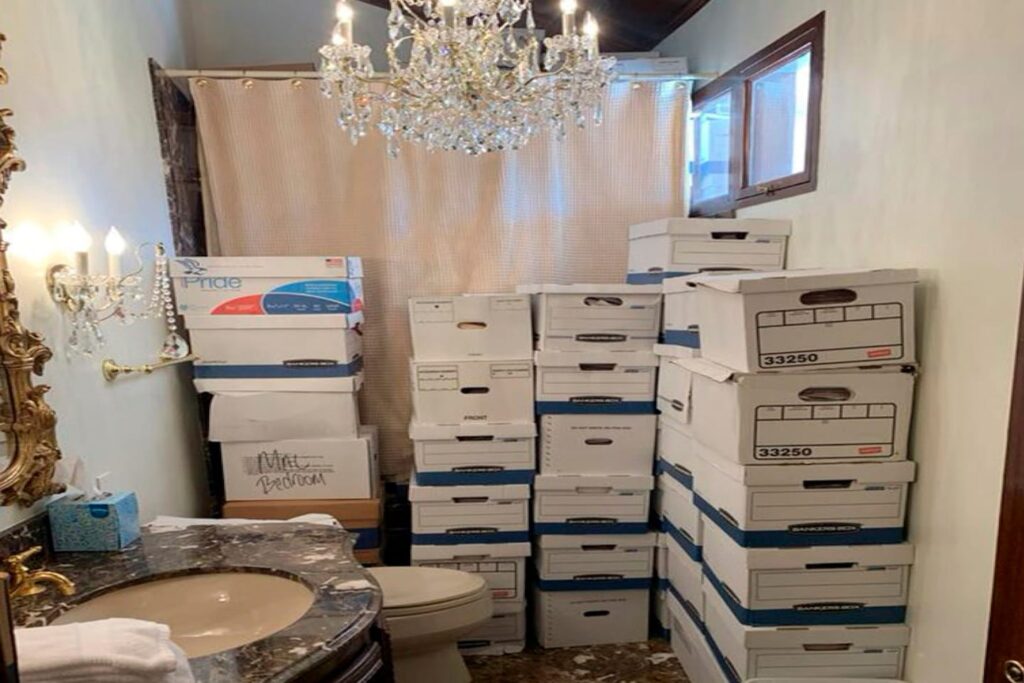Category 1 is “Personal Records”. These are materials of a “purely private or non-public nature that do not relate to or affect the performance of the President's constitutional, statutory, or other official or ceremonial duties.” be. For example, a presidential diary or something related to a presidential campaign.
Category 2 is “Presidential Records,” which can be summarized more succinctly. Almost everything else. The PRA lists several other exceptions, including “official records of a government agency” (because they are records of a government agency) and “additional copies of documents made solely for convenience of reference.”
PRA does not explain how to convert items in the latter category into elements of the former. This is not like a classification. By law, the president cannot simply say, “This is personal.'' But that's exactly what Donald Trump's lawyers appear to be arguing in a court filing in response to their client's federal indictment in Florida.
The argument is made in part of the filing, titled, “There can be no 'unauthorized' possession of records designated by the President as 'personal' under the PRA.”
This is a reference to the first 32 charges in the Florida indictment, which center on the storage of materials at Trump's Mar-a-Lago mansion. The indictment alleges that Trump “unauthorizedly possessed, accessed, and controlled national defense documents, knowingly kept the documents and transferred them to U.S. officials and employees entitled to receive them.” It was not handed over.” Namely, the National Archives and Records Administration, which requested them. The indictment also lists 32 documents that Trump allegedly did not return, most of which were classified.
Trump's lawyers say documents like number 25, “TOP SECRET//HCS-P/SV/ORCON-USGOV/NOFORN: Document dated October 24, 2019, regarding foreign and U.S. military activities,'' are “personal.'' He refutes that it had been declared “a thing.” '' said the president at the time.
“[T]PRA gave President Trump the power to keep records he used. [under] “Article 2 provides the president with the power to designate ‘individuals,’” the filing asserts. He then vaguely explains how this is supposed to have worked. “President Trump designated the record as personal under the PRA during his time in office, rather than as 'former president.'”
Again, the PRA contains no such designation authority. In fact, as historian Kevin Kruse pointed out last year, the law was passed in the years after Watergate, specifically to limit the ability of presidents to hide their administration's records from public view. . Kruse also pointed to the National Archives' explanation of the PRA. He said, “[t]The President does not have the discretion to classify presidential records as personal records. ”
Mr. Trump's lawyers are relying on the section of the PRA that explains how the administration distinguishes between the “president” and the “individual.”
“To the extent practicable, written materials created or received by the President, his staff, or any unit or individual of the Executive Office of the President in a role advising or assisting the President:'' At the time of creation or receipt, they are classified as presidential or personal records and filed separately. ”
Lawyers frame it in the first place as a subjective means of classification rather than as a practical means of determining categories. “The PRA gave the President discretion to designate these records as private,” the filing states. This is saying that the casino's rule of separating cards into black or red piles after use means that the blackjack dealer is allowed to decide what is “red”. Something like that.
Trump's lawyers are seeking to take advantage of the PRA's “additional copies of documents” exception, arguing that:[s]For example, no one on the National Security Council or the intelligence community left the originals of individual documents in the Oval Office after briefings to President Trump and was unable to retrieve them before the end of President Trump's first term. There won't be anyone. ” However, there are reports that Trump also requested that documents presented during the press conference be preserved.
Furthermore, that exception would exclude those copies from the category of “presidential records.” The PRA does not place them in the 'personal records' category. This category also focuses on “materials of a purely private or non-public nature that do not relate to or affect the implementation of the Constitution, laws, or other provisions.” Official or ceremonial duties of the President. ” Rather, they are not considered presidential records simply because they are irrelevant and therefore do not necessarily need to be preserved.
In fact, the archives also addressed this.
“[M]”Depending on how they are used and maintained within the White House, multiple copies (and even photocopies) of the same document can all become presidential records.” If the president wants to “dispose of presidential records that he has determined 'no longer has administrative, historical, informational, or evidentiary value,'” it must be done while he is still in office, and the White House must “first obtain the records.” “You have to,” the explanation continues. A written opinion of a U.S. archivist. ”
The arguments presented by Mr. Trump's lawyers reflect a broad defense of his actions, and that given his position, he is afforded broad immunity. The Supreme Court will consider this argument next month, but this philosophy pervades Trump's rhetorical and legal objections to the indictment. That is, he is allowed to do what he wants and cannot be held responsible for doing such things.
The PRA example shows how tenuous that argument is.


